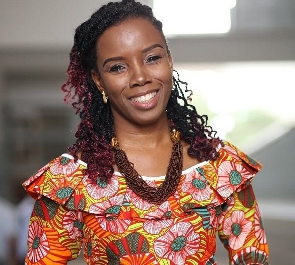Renowned Ghanaian Professor and Quiz Mistress, Professor Elsie Effah Kaufmann, has called on stakeholders to institute rewards and punishments as a means to address the issue of chronic lateness and lack of respect for time in Ghana.
She said this whilst speaking at the seventh edition of the Time Keeping Dialogue Series organized by Transformation Leadership Concepts (TLC), a behavioral and attitudinal change advocacy group held on Sunday, March 26, 2023, via zoom.
Prof Kaufmann said ‘’I believe that, when there are consequences for people meeting or not meeting time, they will fall in line.’’
Drawing from her own personal initiatives to instill proper timekeeping attitudes in her students, Prof Kaufmann indicated she has instituted measures such as quizzes before her classes start and ensuring that any assignment submitted after the scheduled deadline is not accepted.
She said initially, they were difficult for her students, but they gradually got used to them and by the time she gets to her class, almost ninety percent will be seated waiting for classes to begin.
She encouraged heads of institutions and leaders to recognize and reward people who are punctual in their timekeeping and delivery of goals.
She identified lack of planning, lack of accountability, and the feeling of entitlement by some members of the Ghanaian populace, particularly politicians, as some of the causes of the bad timekeeping culture in Ghana.
She expressed her disapproval of the poor timekeeping culture in Ghana stating that it was very frustrating to see timekeeping become a norm for most of the population.
‘’When people are late, they always feel they can get away with it, so it has become a norm. They do it as a habit and don’t see anything wrong with it’’.
She, therefore, applauded the organizers of the Timekeeping Dialogue Series for putting together an initiative to raise awareness about the situation and for resolving to help improve that behavior.
On a larger scale, Prof Kaufmann urged social scientists to support the initiative by calculating how much poor timekeeping attitudes cost Ghana as a country and how the situation can be remedied.
When asked about how important timekeeping is to the National Science and Math quiz, Prof Kaufmann emphasized the critical role timekeeping plays in the successful execution of the project. She said without proper planning and scheduling, the program cannot be successfully executed.
Regarding Women and Timekeeping, Prof Kaufmann advised women to cultivate the habit of planning and delegating tasks, while appealing to men to support their spouses/partners to manage time effectively.
Concerning young people and timekeeping, she called on socialization institutions such as homes and schools to instill the values of timekeeping in young people. She particularly encouraged teachers to make timekeeping an institutional value and advised young people to learn how to manage time effectively.
The event was chaired by Togbe Kwasinyi Kakaklolo Agyeman V, the Chief of Adidome and Communications for change advocate, and hosted by Mrs. Georgina, Asare Fiagbenu, a communication for development advocate.
Background
The Timekeeping initiative is being undertaken to help in creating a better timekeeping culture in Ghana. It was launched to improve the chronic lateness and lack of respect for time and timekeeping in Ghana.
The dialogue series has featured distinguished personalities such as Prof. Lade Wosornu, a retired surgeon, poet, and a fellow of the Ghana Academy of Arts and Sciences; Nana Kwasi Gyan Apenteng, a communication and culture expert; Sydney Casely Hanford, a social commentator, and Manasseh Azuri Awuni, an investigative journalist and a social commentator.
The dialogue has also featured Ibrahim K. Asante an International speaker, trainer, and peak performance strategist; Comfort Ocran, a motivational speaker, and author; Mrs. Ewurabena Benin, learning facilitator and author and Yvonne Oppong Ayisi, a Manager at CBG. Capt. Prince Kofi Amoabeng was the sixth speaker.
The national timekeeping initiative is targeted at policymakers, media, legislators, event organizers, corporate leaders, politicians, teachers, professionals, the youth, civil society, and behavioral change agents.
Press Releases of Friday, 7 April 2023
Source: Transformation Leadership Concepts

















